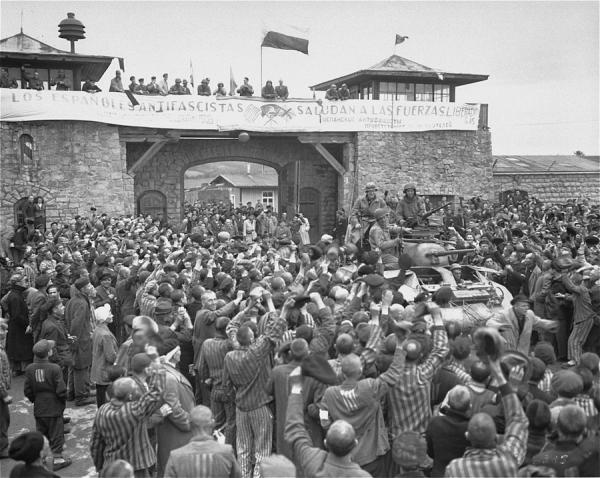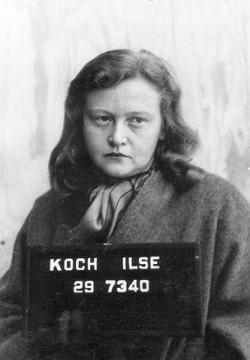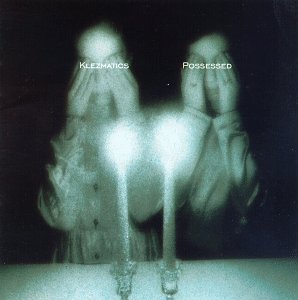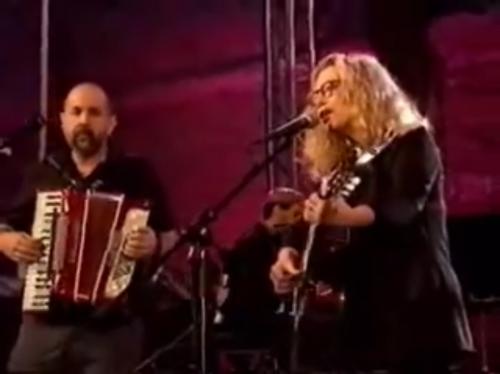Author The Klezmatics
זאל שוין קומען די גאולה

[1946?]
Parole di Shmerke Kaczerginski, in una raccolta pubblicata in Argentina nel 1955 poco dopo la sua morte in un disastro aereo nel 1954.
Musica di HaRav Avraham Yitzchak HaCohen Kook (1865-1935, הרב אברהם יצחק הכהן קוק), meglio conosciuto come Abraham Isaac Kook o con l’acronimo הראיה (HaRaAYaH, che significa Rabbino), ebreo aschenazita russo, filosofo e studioso della Torah, rabbino capo in Palestina durante il mandato britannico.
Testo trovato qui
Interpretata nel nostro millennio da Wolf Krakowski (album “Transmigrations: Gilgul” del 2001), da Maria Krupoves (album “Songs Of Vilna Ghetto / Vilniaus Geto Dainos” del 2003) e dai Klezmatics (nell’EP “Tiny Desk Concert” del 2011).
“Quando il dolore non ci lascia riposare, cantiamo una canzone. Quando siamo affranti, beviamoci su. E se non c’è niente da bere, acqua fresca. L’acqua è la vita stessa: di cos’altro ha bisogno un ebreo? La salvezza arriverà. Signore, fa solo in modo che in futuro il Messia non arrivi – ancora una volta – un po’ troppo tardi!”
Parole di Shmerke Kaczerginski, in una raccolta pubblicata in Argentina nel 1955 poco dopo la sua morte in un disastro aereo nel 1954.
Musica di HaRav Avraham Yitzchak HaCohen Kook (1865-1935, הרב אברהם יצחק הכהן קוק), meglio conosciuto come Abraham Isaac Kook o con l’acronimo הראיה (HaRaAYaH, che significa Rabbino), ebreo aschenazita russo, filosofo e studioso della Torah, rabbino capo in Palestina durante il mandato britannico.
Testo trovato qui
Interpretata nel nostro millennio da Wolf Krakowski (album “Transmigrations: Gilgul” del 2001), da Maria Krupoves (album “Songs Of Vilna Ghetto / Vilniaus Geto Dainos” del 2003) e dai Klezmatics (nell’EP “Tiny Desk Concert” del 2011).
“Quando il dolore non ci lascia riposare, cantiamo una canzone. Quando siamo affranti, beviamoci su. E se non c’è niente da bere, acqua fresca. L’acqua è la vita stessa: di cos’altro ha bisogno un ebreo? La salvezza arriverà. Signore, fa solo in modo che in futuro il Messia non arrivi – ancora una volta – un po’ troppo tardi!”
אָנגעזאָלעט אויפן האַרצן, מאַכט מען אַ לחיים,
(Continues)
(Continues)
Contributed by Bernart Bartleby 2014/10/17 - 09:10
Song Itineraries:
Extermination camps
אין קאַמף
Traduzione inglese dei Klezmatics, dall’album “Jews with Horns” del 1994.

Anche la versione dei Klezmatics si attiene a quella corrente in quattro strofe. La pratica era comune per i canti anarchici in ogni lingua, che erano generalmente troppo lunghi per essere cantati da tutti a memoria. Come tutte le versioni ridotte, però, sono mantenuti (e, forse, in questo modo messi anche in evidenza) i punti chiave del pensiero espresso. [RV]
IN STRUGGLE
(Continues)
(Continues)
Contributed by Bartleby 2011/3/10 - 14:55
Ilsa Koch

Words by Woody Guthrie,
Music by Lorin Sklamberg (The Klezmatics)
A song about the horrors of the Buchenwald concentration camp.
ILSE KOCH
Ilse Koch, born Ilse Köhler (September 22, 1906 – September 1, 1967), was the wife of Karl Koch, the commandant of the concentration camps Buchenwald from 1937 to 1941 and Majdanek from 1941 to 1943.
Ilse is infamous for taking souvenirs from the skin of murdered inmates with distinctive tattoos. Claims that she had a lampshade made out of human skin have never been verified and were discounted at her post-war trial. She was known as "The Witch of Buchenwald" ("Die Hexe von Buchenwald") by the inmates because of her sadistic cruelty and lasciviousness toward prisoners. She is also called in English "The Beast of Buchenwald" and "The Bitch of Buchenwald."
She was born in Dresden, Germany, she was the daughter of a factory foreman. She was known... (Continues)
Music by Lorin Sklamberg (The Klezmatics)
A song about the horrors of the Buchenwald concentration camp.
ILSE KOCH
Ilse Koch, born Ilse Köhler (September 22, 1906 – September 1, 1967), was the wife of Karl Koch, the commandant of the concentration camps Buchenwald from 1937 to 1941 and Majdanek from 1941 to 1943.
Ilse is infamous for taking souvenirs from the skin of murdered inmates with distinctive tattoos. Claims that she had a lampshade made out of human skin have never been verified and were discounted at her post-war trial. She was known as "The Witch of Buchenwald" ("Die Hexe von Buchenwald") by the inmates because of her sadistic cruelty and lasciviousness toward prisoners. She is also called in English "The Beast of Buchenwald" and "The Bitch of Buchenwald."
She was born in Dresden, Germany, she was the daughter of a factory foreman. She was known... (Continues)
I'm here in Buchenwald.
(Continues)
(Continues)
Contributed by Marcia 2008/9/29 - 12:11
Song Itineraries:
Extermination camps
An Undoing World

(1997)
Album: Possessed
Testo di Tony Kushner su una musica bellissima e struggente. E' un po' complicato per me, spero che qualcuno lo traduca!
- Cris
Album: Possessed
Testo di Tony Kushner su una musica bellissima e struggente. E' un po' complicato per me, spero che qualcuno lo traduca!
- Cris
By the time we're done with dancing,
(Continues)
(Continues)
Contributed by Cris Carampa (yossarian99@operamail.com) 2006/8/1 - 10:17
×
![]()



"No Copyright © Courtesy of Label World Village. Support the artist. The Klezmatics - Apikorsim, 2016.
With their latest album, Apikorsim, The Klezmatics - world-renowned, GRAMMY-winning superstars of the klezmer universe - continue to redefine Yiddish music. Heretics, rebels and questioners, Apikorsim are people who challenge orthodox opinions. The Klezmatics are decidedly unorthodox. Their songs proclaim the rights of refugees and workers, sing ecstatically for a better world and mournfully for its losses. They alternately praise God and question the nature of his existence. Apikorsim is the first Klezmatics album with no special guests, session musicians or cross-genre collaborations. This is the sound of the band itself, a sound that has electrified audiences around the world for thirty years."
Nel video: Lorin Sklamberg dei Klezmatics mentre registra... (Continues)